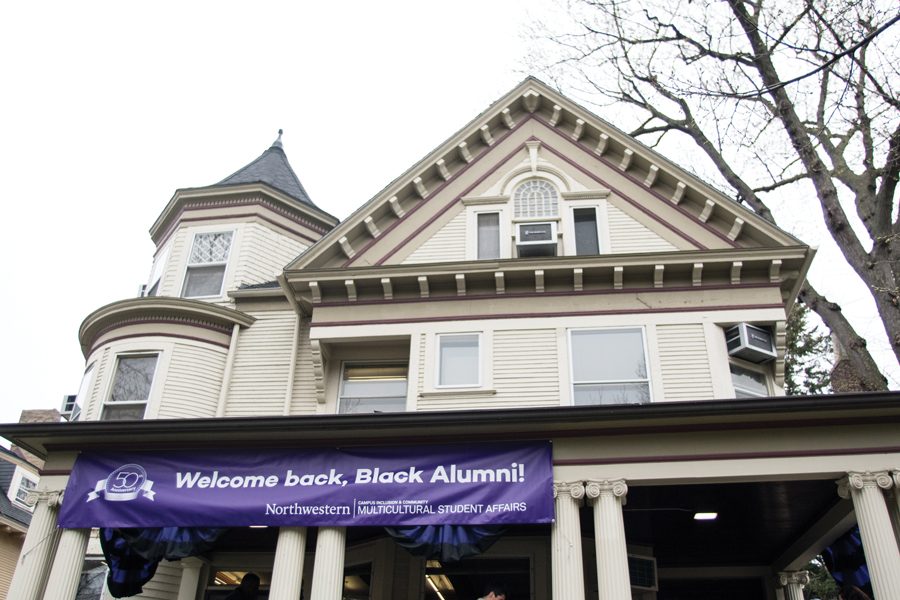Panelists discuss Bursar’s Office Takeover, culture for black students at NU
Colin Boyle/Daily Senior Staffer
A sign above the Multicultural Center. Alumni and administrators discussed the Bursar’s Office Takeover and black student experience at NU during a Thursday panel.
May 4, 2018
Provost Jonathan Holloway welcomed participants of the 1968 Bursar’s Office Takeover decades after they set the course to transform the black student experience at Northwestern.
“Welcome back, I’ve been waiting to meet you for a long time,” he said Thursday introducing a panel discussion about the demonstration. “Through your bravery and your faith, you were determined to say that this house should become your home. I know that for some of you it did become that, I know for some of you it did not. My hope is that in this weekend … it will become home for everyone.”
Holloway asked all former students who participated in the sit-in to stand up, and they were met with a round of applause by the audience.
Panelists discussed the events that took place that consequential spring day, with details on how students planned meticulously for a successful demonstration.
Kathryn Ogletree (Weinberg ’71, Graduate School ’76), who led the Bursar’s Office Takeover in 1968, said black students didn’t feel safe on Northwestern’s campus. Ogletree had beer cans and pens filled with urine thrown at her as she walked down Sheridan Road, she said. She also noticed institutional racism when it came to the housing selection process.
“(There was) the humiliation that we would feel, particularly as black women, when we would move into our rooms and a white girl would come in, take a look at us and then leave,” she said. “And it took some time before we realized what was happening, that they could opt out of rooming with us if they didn’t want to or their mother or other parent did not want that.”
These experiences were “dehumanizing,” she said.
University President Morton Schapiro also spoke during the panel; he said NU has hired more staff for the Office of Student Affairs to work with vice president for student affairs Patricia Telles-Irvin. He added that maintaining a dialogue with students is very important.
“We always have to make sure that with so many more staff members, that we don’t create layer upon layer, and we don’t hear the voices of the students,” he said. “That would be a disaster, and students deserve better.”
However, Jeffrey Sterling (Weinberg ’85), president of the Northwestern University Black Alumni Association, said many of the issues raised during the takeover are still prevalent today.
“We hear so much, and so much is promoted about things that are different now, it’s almost cold, as an excuse to try to move in a different direction,” Sterling said. “But the truth of the matter is that the phraseology is so similar today, in today’s students, as they were for you guys. The word ‘isolation,’ in different contexts, is very much still present today, but for different reasons.”
Email: [email protected]
Twitter: @thejonahdylan
Email: [email protected]
Twitter: @_perezalan_


